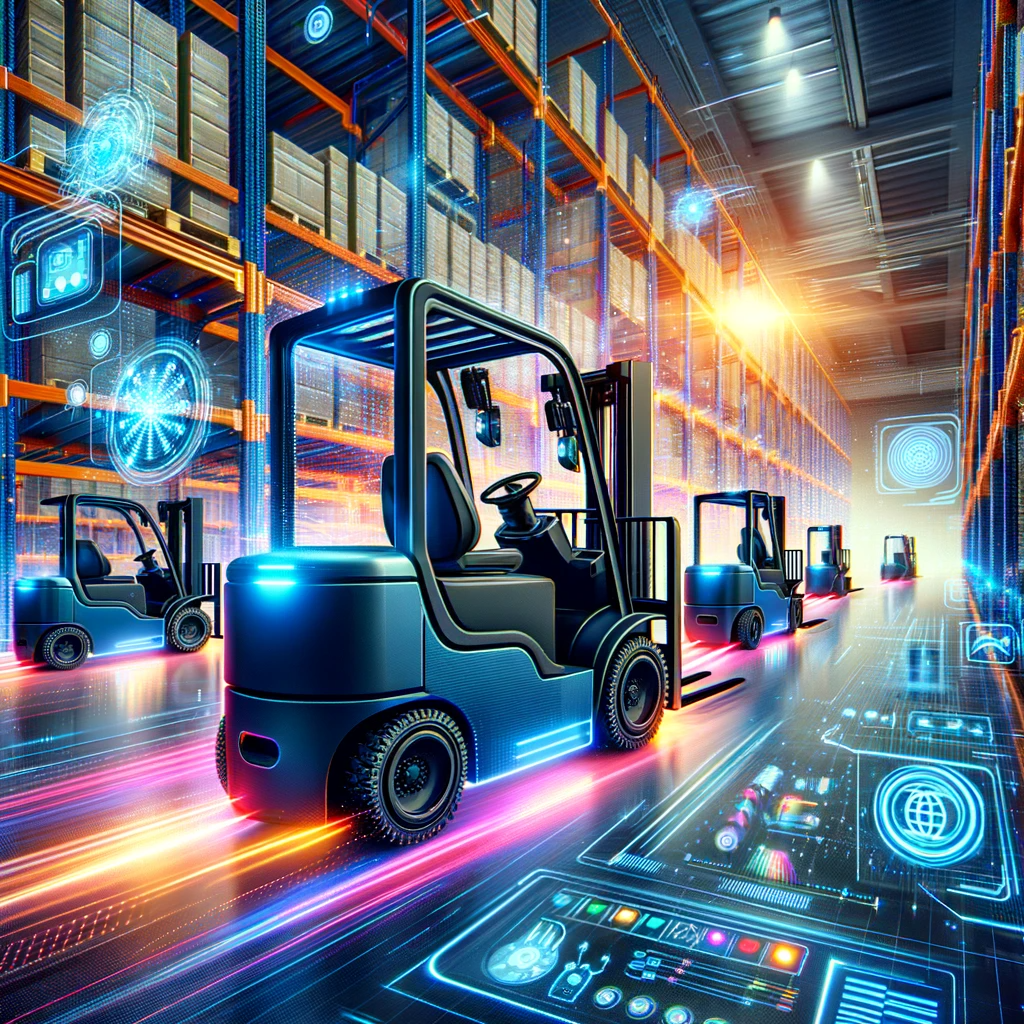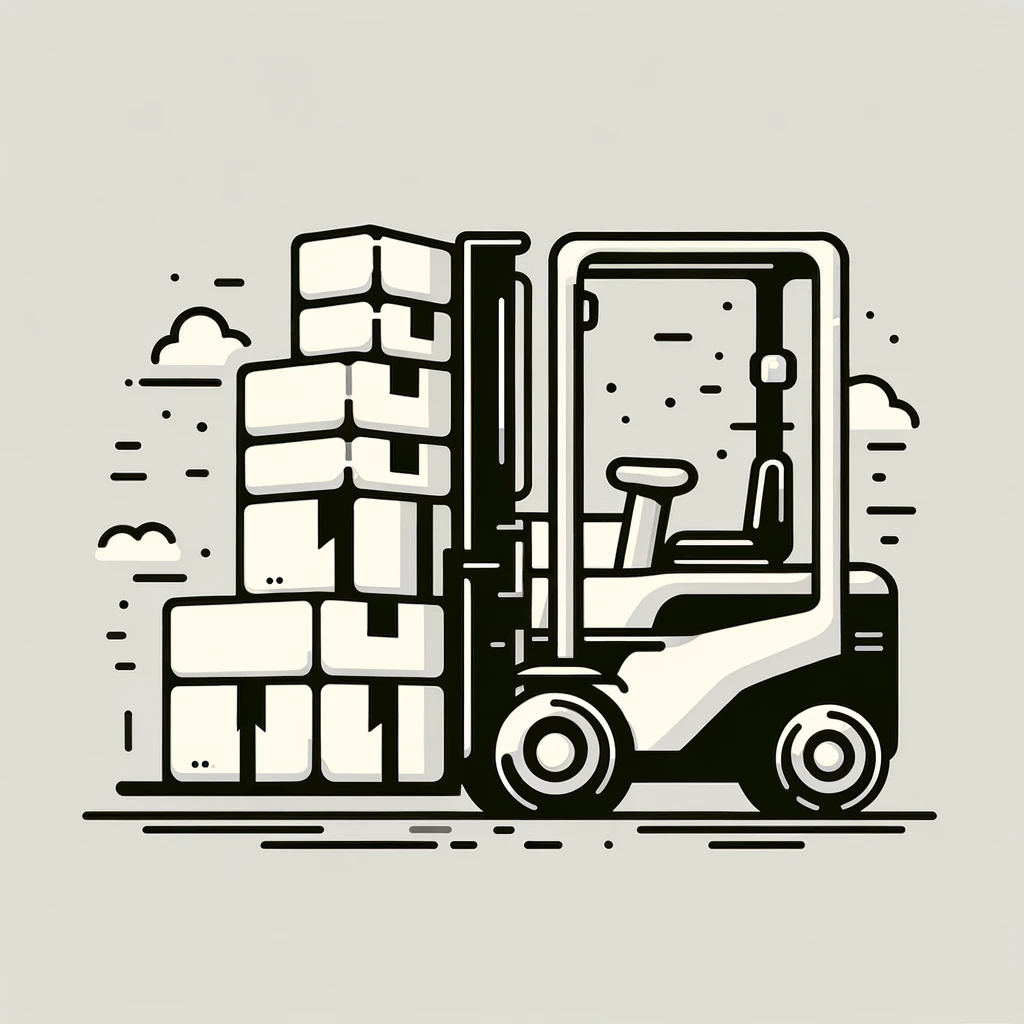In the ever-evolving landscape of logistics and shipping operations, the advent of autonomous vehicles, particularly forklifts, is revolutionizing the industry. While autonomous trucks on highways face their share of challenges, the technology behind self-driving vehicles is gaining significant traction in more controlled environments like freight yards, warehouses, and seaports.
The Pandemic Push: A Surge in Autonomous Forklift Adoption
The Covid pandemic, which brought about labor shortages and operational disruptions, has played a pivotal role in accelerating the adoption of autonomous forklifts. Major companies like Kimberly-Clark and Newell Brands have reaped substantial benefits from this technology. For instance, Kimberly-Clark credits its fleet of hundreds of autonomous forklifts with maintaining a steady supply of consumer products, such as Kleenex and Cottonelle, during the pandemic. Similarly, Newell Brands has observed safety improvements and cost savings across its operations, thanks to these robotic vehicles.
Addressing Labor Shortages with Technology
The growing difficulty in hiring workers has led logistics executives to increasingly turn towards autonomous vehicles for lifting and moving heavy pallets. The market for these autonomous solutions, especially trucks that move trailers around freight yards, is projected to grow exponentially in the coming years, according to ABI Research.
A Safer Alternative: Autonomous Vehicles in Controlled Environments
Unlike the autonomous heavy-duty trucks undergoing high-profile pilot tests on public highways, autonomous forklifts are already operational within the confines of industrial areas. These settings, devoid of the unpredictable nature of public roads, provide an ideal backdrop for these vehicles to operate efficiently and safely.
The Economic and Operational Benefits
Companies like Kimberly-Clark and Newell Brands have witnessed consistent service levels and significant operational benefits from their autonomous forklifts. For instance, Kimberly-Clark has scaled up its autonomous forklift fleet in North America from about 30 in 2019 to over 300, citing stability in throughput and capabilities as key benefits. Newell Brands, with its array of products including Coleman and Rubbermaid, has seen reduced incidents of goods damage and notable cost savings.
Contrast with Public Road Challenges
This positive trend within the confines of warehouses and industrial areas stands in stark contrast to the bumpy journey of self-driving trucks on public roads. Notable companies in the autonomous trucking sector, like Waymo and Embark Technology, have faced significant hurdles, including operational wind-downs and market exits.
Integration in Seaports and Advanced Facilities
At seaports like those in Los Angeles and Long Beach, autonomous guided vehicles are effectively transporting shipping containers across docks. Facilities like the Long Beach Container Terminal showcase advanced uses of this technology, where vehicles autonomously drive to designated areas for battery pack replacements, enhancing operational efficiency.
A Balance of Technology and Human Oversight
Companies like Third Wave Automation offer semi-autonomous forklifts that, while largely independent, are overseen by human controllers. This hybrid approach, currently piloted by C.H. Robinson Worldwide, offers a practical balance, especially in environments like warehouses where conditions can be unpredictable.
Adapting Environments for Robotic Integration
Some companies have modified their warehouses to better accommodate autonomous forklifts. For example, Kimberly-Clark has restructured its warehouses to separate areas designated solely for robotic forklifts from those where human workers operate.
Looking Ahead: Extending Successes to Outdoor Operations
As technology companies witness successes within warehouses, they are optimistic about extending these advancements to more varied outdoor operations like freight yards. The consistency and controlled chaos of these environments present a favorable scenario for autonomous vehicles.
Conclusion: A Future Fueled by Autonomous Technology
The logistics industry is on the cusp of a major transformation, driven by the integration of autonomous technology. As companies like Outrider prepare to launch commercial systems in the near future, the landscape of shipping operations, freight handling, and warehouse management is set to evolve dramatically, marked by increased efficiency, safety, and cost-effectiveness. The success stories of companies like Kimberly-Clark and Newell Brands herald a new era where autonomous vehicles become a staple in logistics operations, overcoming the challenges faced by their counterparts on public roads. (Source)




